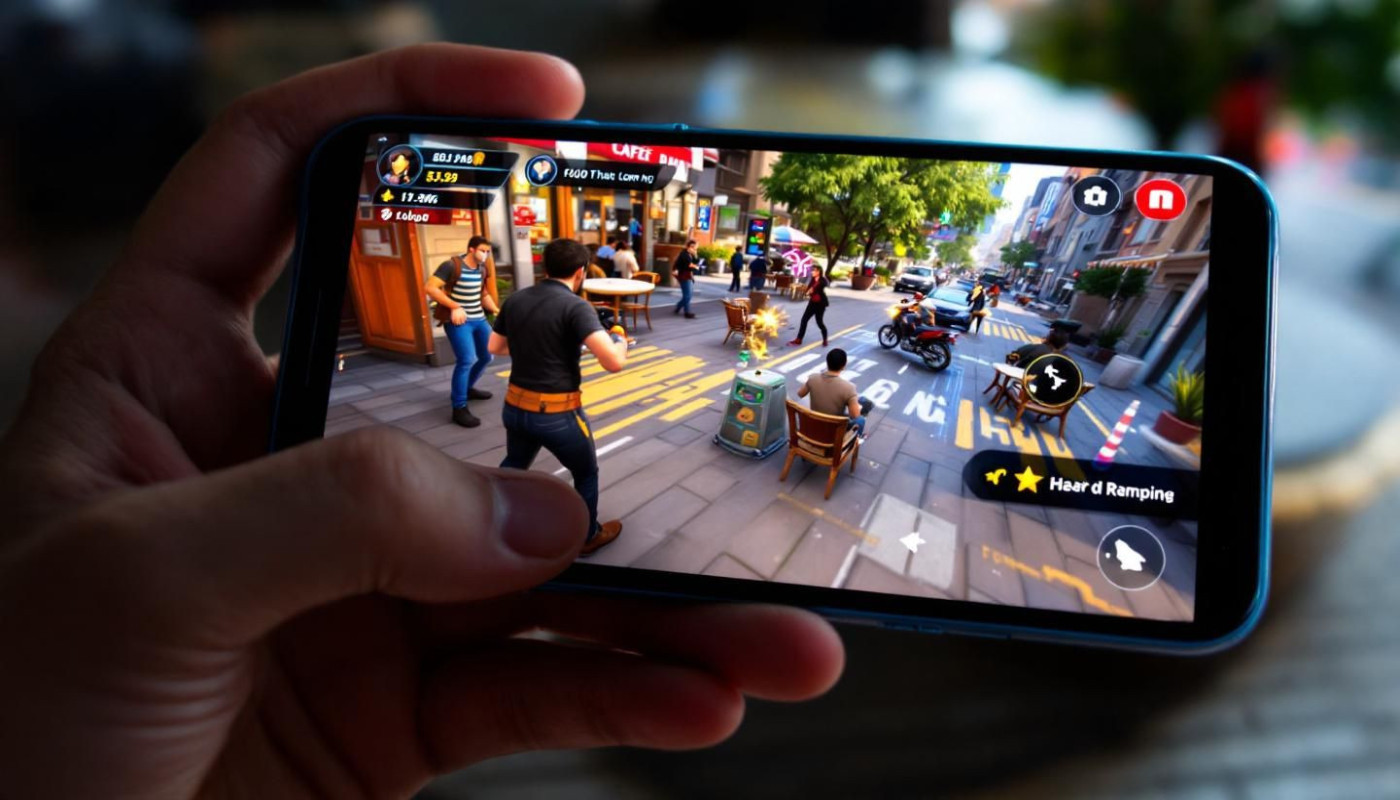Table of contents
Embark on a journey through the high seas of modern video games, where the allure of piracy has evolved far beyond its swashbuckling origins. This article delves deep into the shifting narrative and gameplay mechanics that have shaped pirate-themed experiences in the gaming world. Discover how technological advances and cultural changes have influenced the representation of pirates, making this exploration a must-read for anyone fascinated by the intersection of history and interactive entertainment.
The shifting image of pirates
Pirate games have undergone a significant transformation in their portrayal of pirate character archetypes, moving beyond the simple, villainous figures of early gaming history toward rich, multidimensional personalities. Early pirate-themed video games often depicted pirates as one-dimensional antagonists, drawing from exaggerated pop culture stereotypes: eye patches, parrots, and an insatiable thirst for treasure. Over time, advances in narrative design and a deeper integration of historical research influenced the evolution of pirate characters. Developers began to create storylines exploring the harsh realities of piracy, the motivations behind lawlessness on the open seas, and the complex societal structures within pirate crews. This shift brought about protagonists who grapple with moral ambiguity, loyalty, and survival, reflecting a nuanced understanding of their historical context.
The impact of mainstream films, literature, and renewed academic interest in real-life piracy has been significant in shaping modern pirate-themed video games. As the gaming industry matured, so did its audience’s expectations, prompting developers to infuse more depth into video game narratives. Games now often blur the lines between hero and villain, challenging players’ perceptions and providing opportunities to experience the pirate lifestyle from varied perspectives. This ongoing pirate character evolution affirms the genre’s adaptability and ensures its continued relevance, as each new title draws from both fantasy and fact, blending spectacle with authentic storytelling to create immersive, engaging experiences.
Gameplay mechanics and innovation
Pirate gameplay in modern video games has witnessed significant transformation, combining innovative game mechanics with advances in technology to create rich, immersive experiences. Early pirate titles often relied on linear missions and simplistic combat, but contemporary games now feature dynamic ship battles, sophisticated open-world exploration, and intricate resource management systems. Players can command vessels across vast, procedurally generated seas, engage in tactical ship battles with real-time damage control, and explore islands filled with hidden secrets. The introduction of procedural generation has enabled developers to offer unpredictable environments and quests, ensuring that each player's journey feels distinct and replayable. Open-world exploration has become a defining characteristic, allowing players to freely navigate expansive maps, discover treasure, and interact with a living world where weather, trade, and AI factions respond organically to their choices.
Technological advancements such as enhanced graphics engines, realistic physics, and networked multiplayer environments have elevated player immersion to unprecedented levels. These improvements allow for seamless transitions between ship navigation and on-foot adventures, as well as cooperative gameplay where crews must collaborate to survive storms, engage in ship battles, and manage supplies. The evolution of pirate gameplay mechanics is exemplified by titles that blend traditional swashbuckling action with social experiences, challenging players to balance exploration, combat, and diplomacy. For a closer look at how these elements come together in a leading multiplayer pirate adventure, click to read about the latest Sea of Thieves expansion and its innovative approach to game design.
Cultural impact and representation
Pirate-themed video games have exerted a significant cultural impact by shaping the public’s perception of piracy through a blend of myth and historical reference, resulting in an evolving cultural narrative. Pirate representation in contemporary games often reflects a careful balance between romanticized adventure and the harsher realities of seafaring life, with developers increasingly attentive to both historical accuracy and creative storytelling. This attention has led to a diverse portrayal of pirate crews, incorporating a wider range of ethnicities, genders, and backgrounds, which supports inclusivity in gaming and mirrors broader societal discussions about gaming diversity.
Modern pirate games frequently strive to move beyond outdated stereotypes, instead emphasizing authentic cultural narratives that acknowledge the complexity and multiculturalism present in actual pirate communities of the past. Attention to detail in language, attire, and social dynamics contributes to greater historical accuracy, while also allowing for innovative reinterpretations that resonate with current audiences. The inclusion of characters from underrepresented groups and the careful reconstruction of historical settings enable players to experience a more nuanced version of piracy, challenging traditional depictions and fostering inclusivity in gaming.
This growing focus on thoughtful pirate representation has expanded the cultural impact of these games, influencing how piracy is perceived not only within popular culture but also in the academic discourse on media and society. By addressing issues of authenticity and celebrating diversity, developers have redefined the cultural narrative surrounding piracy, illustrating how gaming can both reflect and shape contemporary debates about representation and inclusivity in digital media.
Storytelling and narrative depth
Narrative depth in pirate-themed video games has seen considerable advancement, transforming basic pirate stories into immersive, interactive storytelling experiences. Modern narrative-driven games have shifted away from linear plots, introducing branching storylines that allow player choices to shape not just the outcome, but the entire journey. This evolution means each decision—whether to follow a moral code, betray a crewmate, or seek vengeance—directly impacts the world and relationships within it, adding emotional weight that traditional narratives often lacked. By weaving in complex moral dilemmas and unpredictable consequences, developers ensure that players become active participants in the unfolding story, forging a deep connection to the characters and setting.
Interactive storytelling in these titles draws heavily on player choices, making the gameplay uniquely personal and enhancing engagement. The result is a game world that feels responsive and alive, as every action can ripple through the narrative in unexpected ways. This depth encourages exploration of multiple paths, as players return to see alternate outcomes and experience different facets of the pirate stories on offer. The blend of branching storylines and emotional stakes has proven effective in keeping audiences invested, fostering a sense of ownership over the narrative that extends replayability well beyond the typical single playthrough.
Such advancements underscore a significant shift in the genre, as narrative-driven games push the boundaries of what pirate-themed interactive storytelling can achieve. The maturation of narrative depth not only elevates the quality of pirate stories but also cements the role of player agency at the heart of the experience. As developers continue to innovate in this space, the allure of exploring the high seas is matched only by the richness and complexity of the tales that players help to create with each new adventure.
The future of piracy in gaming
The future of gaming promises dramatic shifts for the pirate genre, driven by rapid advancements in technology and emerging trends in player engagement. As augmented reality and virtual reality pirates experiences become more immersive, players can expect to step directly into richly detailed worlds, interact with dynamic environments, and participate in epic naval battles or treasure hunts that blur the boundaries between the digital and physical. The evolution of gaming innovation allows for deeper storytelling, procedural world generation, and adaptive AI that responds to individual playstyles, fundamentally altering how pirate narratives unfold.
Player expectations are also evolving, demanding greater agency, customization, and interconnected social experiences. This shift has inspired developers to experiment with shared world adventures, real-time cooperation, and persistent online ecosystems, where alliances and rivalries among virtual crews form organically. The pirate genre, once rooted in single-player escapades or traditional multiplayer skirmishes, is being redefined by these developments, offering vast opportunities for emergent gameplay and community-driven storytelling unique to the future of gaming.
As technology continues to mature, the integration of haptic feedback, voice recognition, and cross-platform play will further enhance immersion, ensuring that virtual reality pirates and augmented reality pirate adventures become staples of the gaming landscape. These innovations not only attract established fans but also introduce new audiences to the genre, cementing piracy-themed experiences as a dynamic and evolving part of interactive entertainment. The pirate genre stands poised to harness these advancements, charting an exciting course into unexplored waters that promise fresh challenges and richer, more engaging adventures.
On the same subject

Exploring The Impact Of Advanced Gaming Engines On Casino Experiences

How Mobile Optimization Enhances Your Gaming Experience

Exploring The Benefits Of Carrot Collection In Gaming?

Exploring The Popularity Of Animal-Based Challenge Games Online

Can You Outsmart The Train? Tips For Winning At Chicken Vs Train

Exploring The Impact Of Game Design On Online Gambling Success

Exploring The Impact Of Anticipated Console Games On Future Gaming Trends?

How Do Automatic Bot Verifications Influence User Experience?

Exploring The Impact Of Welcome Bonuses On New Slot Players

Exploring The Importance Of Certification For Online Gambling Platforms

How Themed Casino Games Utilize Psychological Elements To Engage Users

Maximizing Your Gaming Experience With Welcome Bonuses And Free Spins

Exploring The Benefits Of Online Music Platforms For Emerging Artists

Maximizing Your Winnings With Top Online Casino Bonuses And Rewards

Exploring The Impact Of Traditional Aesthetics On Modern Japanese Web Design

How Digital Transformation Affects Australian Gamblers

The Role Of Software Providers In Online Gaming Quality

Exploring The Rich Features Of Egyptian Themed Slots Online

Maximizing Winnings In High-Stakes Virtual Casino Games

Understanding RTP And Fairness In Online Plinko Versions

Understanding The Safety Of Online Casinos Through Gaming Licenses

